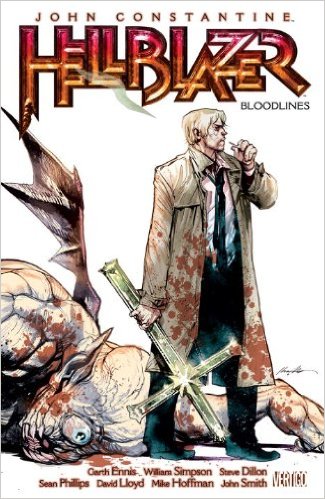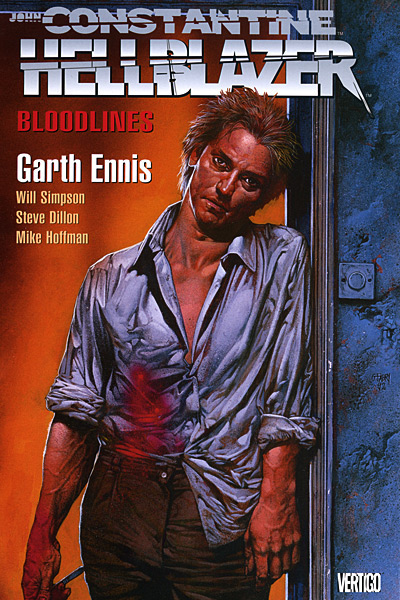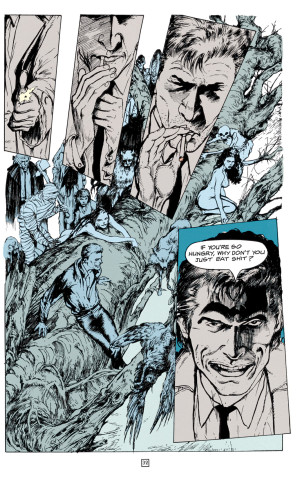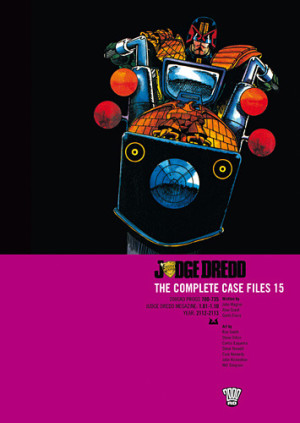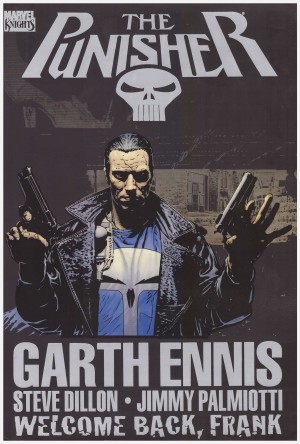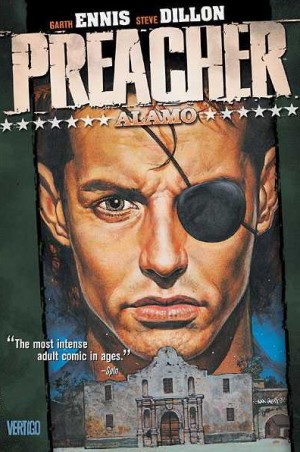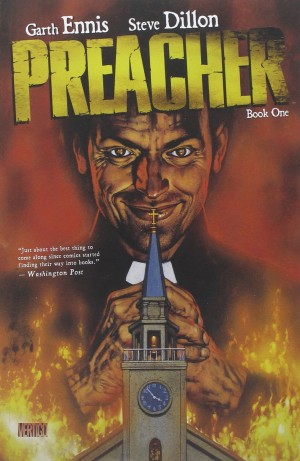Review by Jamie McNeil
The most impressive aspect of Garth Ennis’ Hellblazer run was the number of memorable characters he created. It gives his work on the series a distinctive flavour and by Bloodlines there was very little of Delano’s approach in what Ennis produced. Bloodlines stands out as an impressive body of work, simultaneously inventive, sensitive, bitter, cheerful, cynical and optimistic while still being Hellblazer through and through.
This fine assortment of horror stories brims with vengeful ghosts, demonic pacts, ancient vampires, and twisted gentry releasing their dark energies in the charmingly named Caligula Club. The title itself comes from a particularly nasty story about a demon possessed Royal, Constantine grudgingly brought in to solve the problem. Ennis fires both barrels of dark cynicism and simmering anger at the British class system, the royal family and organised religion. It’s so searing and irreverently hilarious, it’s a wonder Ennis and artist Will Simpson didn’t mysteriously disappear at some point during its run.
Will Simpson moves from penciller to full artist with aplomb, his introduction of the King of Vampires a macabre and vividly depicted masterpiece that still makes the skin crawl. Another 2000AD alumni writer John Smith also has a story here, a horribly sinister affair illustrated by Sean Phillips to full effect, but it is Ennis and Simpson who really steal the show with their sadistic elite and perverted nobles, well written, finely illustrated and setting the foundations for plot devices that would be used in Preacher later on.
Talking of which, slotted between Simpson’s stories is Ennis and Steve Dillon’s first Hellblazer collaboration. Their creative synergy is immediately apparent in a story without the gore or creepiness present in the remaining content. It’s a Christmas tale introducing an ancient Pagan spirit named The Lord of the Dance, a raucous affair both funny and sentimental with a thinly veiled pop at religious control. In a tribute to his friend after Dillon’s death, Ennis talked about Dillon’s love for pubs, or rather the energy and people that inhabit them. Read this story and that shines through in every way, Dillon dragging us through the page into a pub atmosphere that induces a hankering for a good beer.
The best horror works, not because it has terrifically spooky content, but because it makes you consider the possibility that the creators might know something about their subject you don’t. Aspiring horror writers would do well to take notes from this book.
Ennis and Steve Dillon would enter a more permanent partnership in the seventh Hellblazer volume, Tainted Love.
